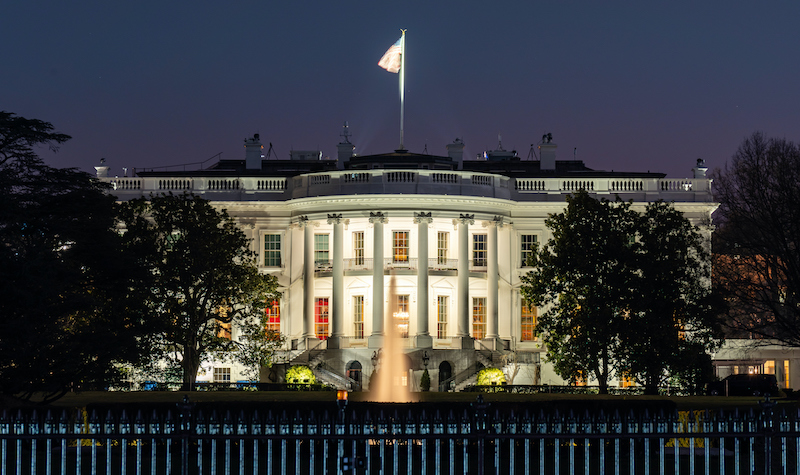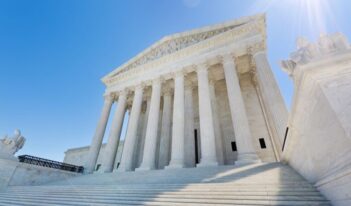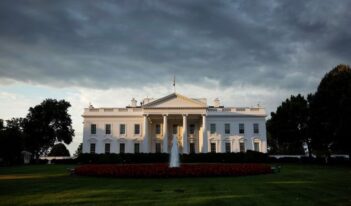
Scholar argues for more stringent guidelines to govern the transfer of presidential power.
President Donald J. Trump’s initial refusal to start the formal presidential transition process and long refusal to concede the election—only conceding after his supporters attacked Capitol Hill—has drawn heightened attention to the approximately 75 days between Election Day and the inauguration of a new President.
In a recent paper, Joshua Zoffer characterizes presidential transitions as “lawless” and urges Congress to adopt new legislation to address the serious ethical and governance problems that afflict presidential transitions.
The line between an outgoing President and an incoming President blurs once a new President is elected, Zoffer argues. Although a President-Elect does not have constitutional power, Congress often treats the President-Elect as if he does. For instance, Congress frequently holds confirmation hearings for nominees before the inauguration of the President-Elect. Presidential transition teams also often work with the Office of Management and Budget to help plan the executive budget before the new administration takes office. Furthermore, presidential transition team members receive security clearances, classified information, and access to government offices and staff.
Zoffer maintains that presidential transition teams wield quasi-executive powers. During the transition process, the President-Elect nominates key government officials, begins to fill the approximately 4,100 presidentially appointed positions, sets expectations for administrative agencies, creates policy plans, develops priorities for the first 100 days in office, and even drafts executive orders.
Yet presidential transition teams are governed by few laws when compared to sitting Presidents, explains Zoffer. The main laws governing transition teams are the Presidential Transition Act, the Logan Act, nonprofit law, and voluntary ethics codes.
The Presidential Transition Act of 1963, and its subsequent amendments, promote a smooth transition process by providing access to office space and funding. This law also requires disclosure of financial contributions and names of transition personnel and limits contributions by private persons and organizations. Furthermore, it requires the outgoing administration to create a coordinating council, negotiate a memorandum of understanding to govern the transition process, and create an ethics plan to mitigate conflicts of interests.
The Logan Act makes it a criminal offense for private citizens, such as the President-Elect and his team, to engage in foreign policymaking. Zoffer notes, however, that incoming Presidents have a “long history of bucking the U.S. Constitution” and engaging in foreign policymaking. For instance, within only five hours of his election, President Dwight D. Eisenhower sent a “message of friendship” to France and later in his transition took a trip to meet with the South Korean President. Zoffer maintains that there is a thin legal line between creating a relationship and influencing foreign policy within this context.
Presidential transition teams are nonprofit organizations, and thus they are governed by nonprofit law. As a result, Zoffer explains, the transition team cannot engage in political campaigning and must seek to promote an element of social welfare.
Lastly, presidential transition teams often adopt their own voluntary codes of ethics. The Obama-Biden transition team, for instance, required staff members to recuse themselves from working on issues they had a financial interest in, to refuse bribes, and to not use information learned during the transition process for private gain. Zoffer emphasizes, however, that these ethics codes lack legally enforceable sanctions.
In contrast, sitting presidential administrations are governed by many constitutional and statutory rules. For instance, Presidents are subject to the U.S. Constitution, the Ethics in Government Act (which criminalizes bribery and other financial conflicts of interest), and rigorous record keeping and transparency laws, among others.
Zoffer argues that this disparity in legal guidelines and accountability mechanisms between outgoing and incoming administrations is problematic because the stakes of the presidential transition process are often just as high as the stakes of the actual presidency. Zoffer contends that presidential transition teams face the same ethical quandaries that current administrations face—conflicts of interests, bribes, and self-dealing that can be brought into the White House or used to undermine the outgoing administration.
Because of the potential for corrupt dealings, many of the same laws governing current administrations should also govern presidential transitions, Zoffer argues. He proposes that Congress enact several statutory remedies to ensure the fair transfer of power.
For example, Congress should provide full funding for presidential transitions, eliminating and banning the use of private funding. Ensuring that presidential transition teams are publicly funded would reduce the risk that private parties can influence the incoming administration’s policy decisions, Zoffer claims.
Furthermore, he urges Congress to extend federal ethics rules to cover transition staffers. Zoffer argues that codifying these ethical rules, instead of making them voluntary, would increase their efficacy.
Zoffer also proposes the creation of an inspector general position for presidential transitions. The inspector general of presidential transitions would audit transition teams and ensure compliance with federal mandates.
Zoffer recognizes that the presidential transition process is short and thus that new laws should not hinder the ability of the President-Elect to carry out critical planning. Yet, Zoffer concludes that, because the fair transfer of power is crucial to American democracy, the current “lawless state of affairs cannot be permitted to exist.”



